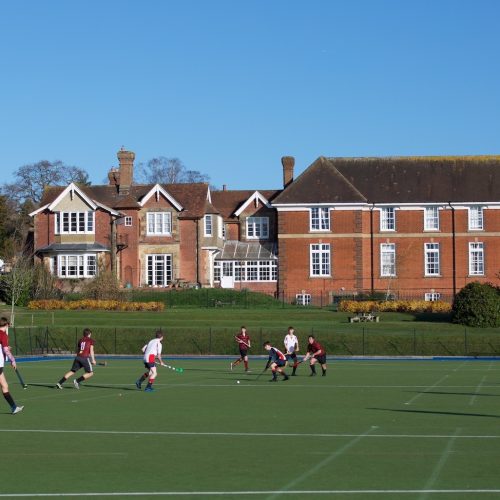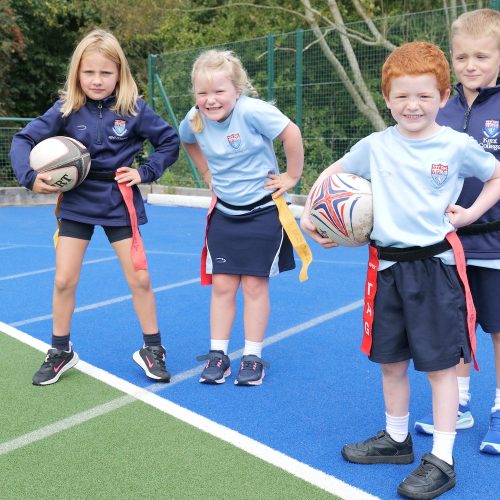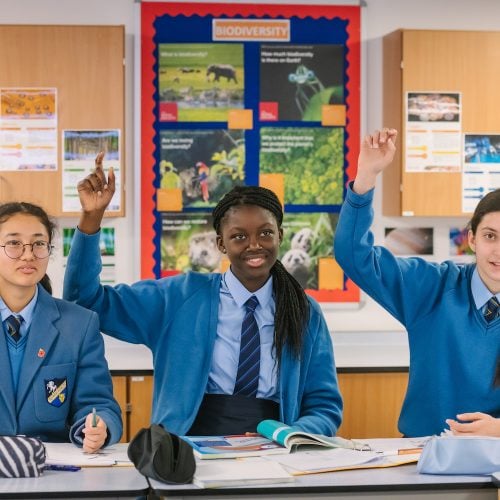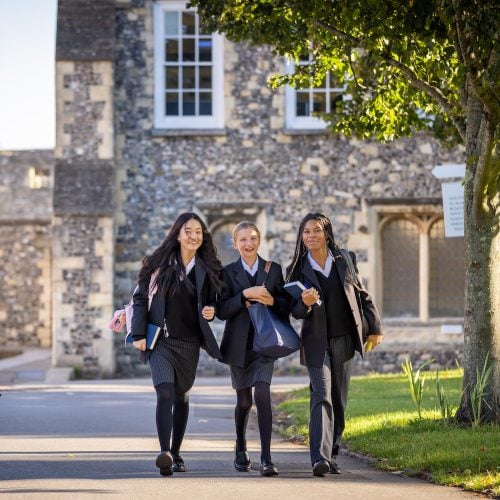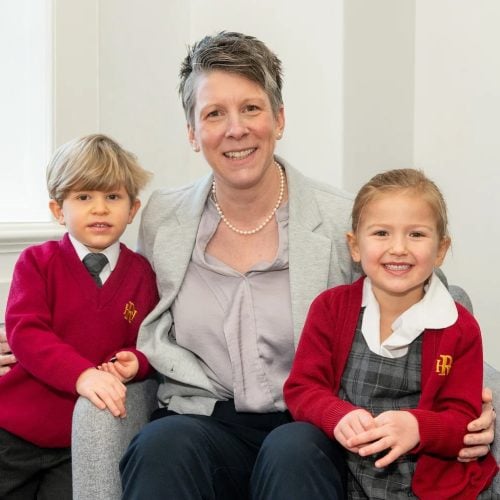How to make English exciting and relevant for pupils today!
Meet 5 Senior Students from Solefield School and find out what they find motivating and exciting about learning English…
The modern world is changing fast – so to give lessons that will genuinely inspire and inform you have to keep adapting – and be imaginative. This is the approach taken by Emma Snow, Head of English, at Solefield School.
What’s more, while research suggests that boys can fall behind girls at this age when it comes to English – this school is definitely proving that boys can love, and excel in, this subject just as much. Here, 5 Senior Students from Solefield School share their story:
Charlie (Year 6) tells us about class activities:

Mrs Snow, our English teacher, makes English so much fun and exciting by letting us do activities where we can imitate the real world. For example, when we were studying Macbeth, we did a BBC news report about the battle and the events that occurred at that time. It was great fun and I really got into being a news reporter.
Another time, we were practising creative writing using Goldilocks and the three bears as an example, but Goldilocks gets arrested. I put a blond wig on to pretend to be Goldilocks and I was interrogated by the rest of class as if they were police officers (as I was guilty of trespassing and damaging property). That was a great lesson on reported speech!
On another occasion, when we had just finished a piece of writing (we were doing a leaflet about our school), we decided to do peer evaluation in the form of ‘Year Six Has Got Talent’ – in order for us to really focus on how to improve our persuasive writing. In our simulation, the paragraphs were the contestants and there were three judges: two friendly, positive ones (who gave lots of encouragement and some constructive criticism), and one who was Simon Cowell – who harshly criticised it – and this made us laugh out loud. All these examples are what make our lessons exciting and fun, whilst we learn and develop our skills. My personal favourite was being a BBC reporter and that activity was when I first started to really enjoy formal writing.
Jonathan (Year 7) speaks about writing for a wider audience:

One thing that has motivated me is getting my writing published. When I first realised that my work was going to be published in a genuine magazine (Mind’s Eye Prep), I was really excited. We had been writing magazine articles to practise for our Common Entrance exams and I had decided to write one about my experience with Alopecia.
I expected, at most, just a couple of classmates to take interest in my work but now – knowing that hundreds, possibly thousands, of people will read my article – I am awestruck. I never thought I would be good at English, let alone have my writing read by loads of people. Once Mrs Snow had read my article, she recommended that I submit it to BBC Young Reporters. A couple of days later, my mother got an email explaining that I had been shortlisted for the competition. So, there is a chance that I will be turning my article into a BBC documentary. Pretty cool!
Up to Year 5, I really struggled with English. My handwriting was really terrible and I didn’t really know how to write a story. It was around that time that I discovered that I have dyslexia. However, since then I have found my confidence for writing. Last year, I entered a Young Writer’s competition entitled ‘Unsolved’ and I was happily surprised when I found out that I was one of the winners (see the photograph of me with my cheque and trophy). So, I might have dyslexia, but I think this proves that if you dedicate yourself to something, anything is possible.
Dara (Year 6) speaks about debating:

The Debating Club here at Solefield is challenging, hardworking and extremely good fun. I have to admit, one of the most enjoyable parts in Debating Club is brainstorming wonderful ideas about the motion. As the opposing team states a strong point, I feel anxious but am loving the adrenalin. Nothing beats the feeling of strongly rebutting your opponent’s points and – in the corner of your eye – seeing their smugness disappear whilst your teammates punch the air.
We have so many young debaters here at Solefield School that the teachers had to start running a second club. I attend one of the clubs as a debater, and the other as a ‘mentor’ for the newcomers. Through my debating experience, I have learnt to use more sophisticated vocabulary and evaluative adverbs.
I have also learned to speak with conviction and confidence. One of the main reasons why I joined the Debating Club is because I wanted people to hear my arguments and opinions. However, in addition to this, I have massively improved my English. I have never felt more motivated to become knowledgeable and articulate, so that I can be the best debater that I can possibly be.
Nico (Year 8) speaks about writing for a real purpose:

During Year 7, we were challenged to write a letter to the Headmistress of our school, trying to persuade her to do something that we believed in. I chose to write a persuasive letter about why ‘snow days’ should go ahead even though there is potential for lessons to continue virtually.
I used persuasive techniques and powerful points to try to earn our potential snow day. After reading my letter, she was so convinced that she allowed us to have a day of snow activities rather than virtual learning on the first day of a significant snowfall. It was exhilarating for me once that snow day actually happened.
I think all the boys at our school realised the power of persuasive letter writing that day, too! It has inspired me to do more persuasive writing as I feel I can actually achieve something with my writing. This year, when the current Year 7 boys were studying persuasive writing, I was shocked to find out that my piece was being used as WAGOLL (What A Good One Looks Like – a model piece). I felt extremely proud and accomplished.
Arthur (Year 8) speaks about being a mentor for younger students:

When I was in Year 5, I participated in my first debate and ever since then I have been completely committed to the Debating Club. I think the reason for this was how impressive the older students were: the way they spoke and the intelligence in their arguments made me want to improve my own skills.
By watching them in action, I learned how to speak articulately and with conviction. Their willingness to speak in front of everyone inspired me to pay more attention to them and to absorb as many skills as I could. Now I’m in Year 8 myself and I have taken their place.
I cannot be sure the younger boys are as inspired by me, but I hope so. I have been mentoring the Year 5s this year and I can tell that it is working; they are improving far more rapidly than I had expected. It seems to me that having a student role model is a very effective way to learn.
You may also like










